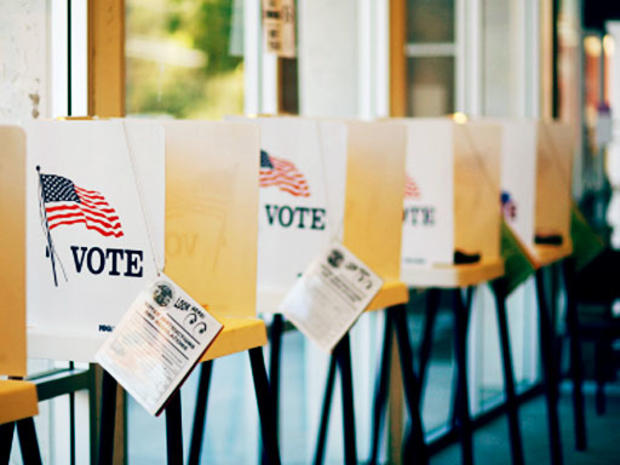Vote on the weekend? Government study inconclusive
The Government Accountability Office (GAO) has released the first major U.S. report on the costs and benefits associated with holding elections on weekends - though it said it could not "draw valid conclusions" about what impact moving elections to weekends would have on voter turnout.
Under federal law passed in 1845, elections are held on the first Tuesday after the first Monday in November. Lawmakers chose Tuesday in order to give voters one travel day after the Sunday day of rest to get from their farms into town to vote. Critics say the practice of voting on Tuesdays is outdated and depresses turnout.
"Since nationwide federal elections have never been held on a weekend, it is difficult to draw valid conclusions about how moving federal elections to a weekend would affect voter turnout," the GAO report said.
The GAO report focused in large part on the logistical challenges of holding elections on weekends, identifying challenges in doing so including "finding poll workers and polling places, and securing ballots and voting equipment-and expected cost increases." It noted that 35 states and the District of Columbia offered voters an alternative to Election Day voting in the 2010 federal election.
The founder of an organization called "Why Tuesday?", which is trying to boost voter participation by moving Election Day to the weekend, was critical of the report. William Wachtel said the GAO should have taken into account weekend voting outcomes in other countries.
"It is a shame that they seem to have missed the point...they have turned a blind eye to the fact that 138 of 172 democracies vote more that we do in some measure because they vote on the weekends," he said.
Weekend voting is just one type of reform advocates have pushed to increase turnout by making voting more convenient. According to Harvard researcher Anthony Fowler, who has studied such reform proposals, these alternate proposals would not significantly increase turnout. "[O]ther electoral reforms such early voting, motor-voter, and vote by mail have little effect on voter turnout," says Fowler.
In the 2010 election cycle, about 42 percent of eligible citizens voted; that figure was 64 percent in 2008, when presidential candidates were on the ballot.
Jacob Soboroff, executive director of "Why Tuesday," told Hotsheet last monththat "it literally is just silly that we're still voting on this day when so many Americans are working two jobs, don't necessarily have time to make it to the polls before or after work." (Watch at left.)
Soboroff argues that if the Weekend Voting Act, which would move Election Day to the first weekend in November, were passed, turnout could hit 70, 80 or even 90 percent.
South Carolina, which always holds its primaries on a Saturday, was not one of the nine states interviewed by the GAO for this report. According to party officials, the South Carolina primary has traditionally been held on a Saturday because it was the only day they could round up enough volunteers to staff the polls.
